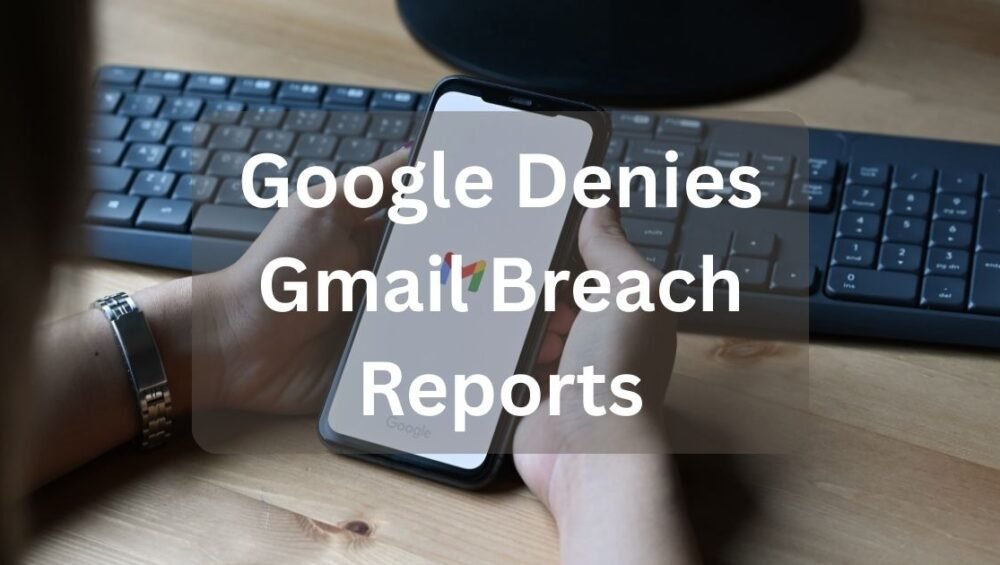Google says reports of a massive Gmail breach are false. Here’s what really happened and how to protect your account today.
Rumors of a Massive Gmail Breach
If you’ve been scrolling the internet lately, you may have seen some scary headlines claiming that Gmail suffered a massive breach and that all users were urged to reset their passwords. The number “2.5 billion accounts” was thrown around, sparking panic and confusion. But here’s the truth straight from Google itself: those reports are false. Gmail has not been breached, and there is no evidence that user passwords have been compromised.
What Sparked the Rumor
The panic started when a wave of reports suggested that Gmail had experienced a major security issue, affecting billions of users worldwide. The headlines went viral, making it sound like every Gmail account was at risk. However, the root of this confusion lies in a separate incident involving Salesforce-related systems, not Gmail. That situation led to phishing attempts targeting users, but it was wrongly connected to Gmail and blew up into a full-blown security scare.
Google’s Official Response
Google was quick to address the claims, calling them “entirely false.” The company confirmed that Gmail’s security systems remain strong and that no large-scale breach of accounts has taken place. Gmail already has powerful protections in place to block suspicious activity, including advanced phishing filters and safe browsing checks, which work around the clock to keep accounts secure.
What Actually Happened
While Gmail itself wasn’t hacked, there has been an increase in phishing and social engineering attempts. These scams often follow high-profile security stories, with attackers taking advantage of user anxiety. In other words, when people are worried about a breach, they are more likely to fall for fake security emails or phone calls. Cybercriminals use that moment of panic to trick users into giving away their passwords or two-factor authentication codes.
Should You Change Your Password?
Many users wondered if they should immediately change their Gmail password. The truth is, a password change is only necessary if you think your account was directly exposed, if you clicked on a suspicious link, or if you reused your Gmail password on another site. If none of that applies, there’s no urgent reason to reset. However, this could be the perfect time to consider switching to passkeys. Passkeys are more secure than traditional passwords because they cannot be phished.
How to Stay Safe on Gmail
Even though Gmail wasn’t breached, it’s always smart to take extra precautions. Enabling two-step verification or, better yet, passkeys, adds a strong layer of protection. Google also offers a Security Checkup feature where you can review devices, apps, and recent activity linked to your account. If you see anything suspicious, you can remove access right away.
Phishing attempts are becoming more creative, so it’s important to stay alert. Be cautious of emails that demand urgent action, contain strange attachments, or link to unfamiliar websites. Also, remember that Google will never call you or email you asking for your passwords or verification codes. If you get a call claiming to be from “Google Support” asking for sensitive information, it’s a scam.
The Role of the Media
Part of the chaos came from how quickly the story spread online. Some reports mixed up details, while others exaggerated the situation. Once the “2.5 billion accounts” number hit the headlines, the panic took on a life of its own. This shows how important it is to check official sources before believing or sharing such news. A single misinterpretation can spiral into global confusion.
Advice for Businesses and Teams
For organizations using Google Workspace, this story is a reminder to tighten security policies. Admins can enforce two-step verification, restrict app permissions, and roll out passkeys for employees. Regular staff training also helps, because phishing simulations and awareness sessions make people less likely to fall for scams. When teams know exactly what to do if they receive a suspicious message, the whole company becomes more secure.
The Bottom Line
The Gmail breach news was false, but the conversation around it highlights an important truth: online security is something we all need to take seriously. While Google confirmed that Gmail was not compromised, attackers are still trying to trick users through phishing and impersonation. That means you should stay calm, stay cautious, and make sure your account is properly secured.
Conclusion
In the end, Google has made it clear that Gmail remains safe and that the reports of a massive breach were based on misinformation. What really happened was a case of phishing attempts being linked to a different incident, but the story spun out of control. If you are a Gmail user, you don’t need to panic. Instead, use this as a reminder to review your security settings, enable two-step verification or passkeys, and learn how to spot scams. Good security habits are your best defense, and they’ll protect you no matter what rumors are swirling online.
FAQs
Q1. Did Gmail suffer a massive data breach?
No, Google confirmed that the reports of a widespread Gmail breach were false.
Q2. Should I change my Gmail password right now?
Only if you suspect your account was exposed, you clicked on a suspicious link, or you reuse the same password on other sites.
Q3. What are passkeys, and should I use them?
Passkeys are a more secure login method that replaces passwords. They are resistant to phishing and are highly recommended.
Q4. Why did phishing scams increase after the breach rumors?
Attackers take advantage of fear and confusion. When people worry about security, they are more likely to click on fake alerts.
Q5. How can I protect my Gmail account?
Enable two-step verification or passkeys, run a Security Checkup, and always be cautious of suspicious emails or calls.







